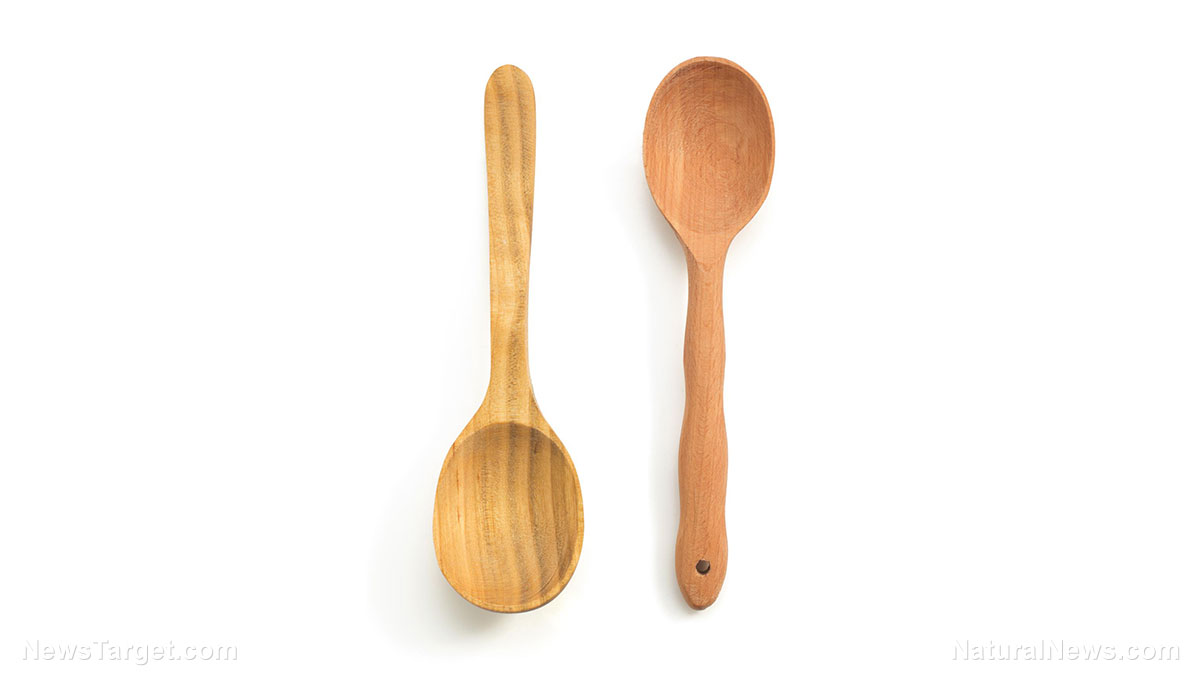
Advertisement
If you are using plastic cooking utensils in your kitchen, it may be time to throw them away altogether. Scientists have warned that many plastic cooking spoons, whisks and spatulas contain harmful substances. These harmful substances called oligomers can get into your food when exposed to temperatures more than 70 degrees Celsius (158 degrees Fahrenheit.)
Oligomers are used in making plastic utensils to make them grease-proof and able to withstand boiling temperatures without melting. But excessive amounts of oligomers in the body can cause a plethora of ailments such as liver and thyroid disease. These synthetic compounds have also been linked to high cholesterol, infertility and cancer.
There is insufficient data regarding the negative effects of oligomers in humans as of writing. But in vitro studies using mice have revealed that these chemicals play a role in the development of tumors in the liver, pancreas and testicles. Furthermore, oligomers were also found to negatively impact mice fertility.
The German Federal Institute for Risk Assessment (Bfr) issued the warning against plastic utensils in a September 2019 report. Scientists from the food safety watchdog explained that plastic cooking utensils give off oligomers when heated. These oligomers can leach into food when the utensils are in direct contact, they added. Bfr’s warning bolstered earlier evidence that plastics used in food contain toxic chemicals that people eventually ingest.
Bfr experts looked at 33 items and found that 10 plastic cooking utensils could easily leach more than the daily limit of oligomers when used to cook multiple meals. Thus, the German watchdog advised against using plastic cooking utensils on meals with a temperature of 70 degrees Celsius or more. It also advised the government to mandate plastic manufacturers to compile data on the amount of oligomers their products give off when exposed to heat.
Now that the dangers of plastic utensils in the kitchen have been exposed, the next question is: “What do we replace these harmful kitchen wares with?” Here are four alternatives to plastic wares you can adopt in your kitchen.
Replace plastic cooking utensils with wood or stainless steel
If you are worried about toxic chemicals from plastic utensils reaching your food, try using wood or stainless steel utensils for a change. Wood from sustainably-managed forests is commonly used for cooking spoons and cutting boards. Wooden utensils do not leach out toxic chemicals when heated. They also withstand heat better and do not melt when exposed to high temperatures. You can also use stainless steel utensils, which definitely last longer and are easier to clean.
Replace plastic food containers with glass
Putting food in plastic containers when you re-heat it in a microwave oven also exposes you to toxic oligomers. The high temperatures combined with microwaveable containers causes toxins to leach out into your food. Plastic containers are also harder to clean. Thus, it’s better to shift to glass containers which are easier to clean and do not leach out oligomers and other nasty stuff. Transparent glass containers also lets you immediately see what’s inside them. No need to guess what’s inside!
Replace plastic food wraps with beeswax-coated cloth
Conventional wrappers for takeaway food are usually coated with perfluoroalkyl and polyfluoroalkyl substances (PFAs) to make them durable and greaseproof. Burger wrappers, pastry bags and pizza boxes harbor these chemicals that are linked to infertility, thyroid disease and cancer. Beeswax cloth is a safer and more eco-friendly alternative you can use to wrap your food. It’s made from cotton with a beeswax coating – both natural materials – so you don’t have to worry about dangerous PFAs!
Replace plastic water bottles with steel or glass containers
Scientists have advised people to be wary of plastic water bottles because of the micro- and nano-plastics they contain. A team of scientists tested 259 water bottles from 11 brands for micro-plastic contamination back in 2018. They discovered that 93 percent of the water bottles they analyzed appeared to have contaminated their contents with micro-plastic. You can ditch plastic water bottles for more durable stainless steel and glass bottles. Aside from lasting longer, they keep your drinking water cooler for a longer period too!
The danger of oligomers and other toxic chemicals reaching our food is real, as plastics are ubiquitous in the kitchen. Synthetic chemicals in plastic utensils, food containers and drinking bottles pose a threat to you and your family’s health in the long run with frequent use of these. Fortunately, you can replace these toxic plastics with safer alternatives that are much more eco-friendly too!
Visit CleanFoodWatch.com to learn about the dangers of toxic chemicals from plastics leaching into your food.
Sources:
Bfr.Bund.de [PDF]
Advertisements







